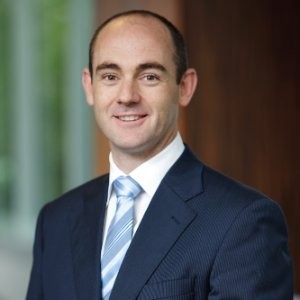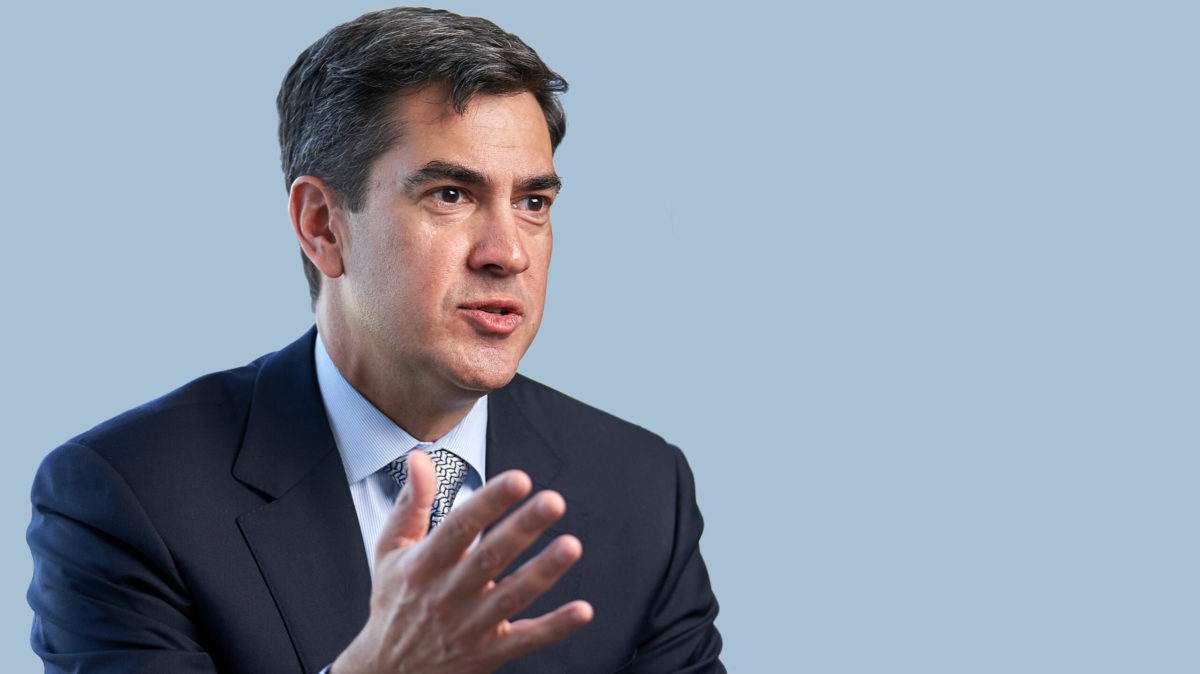Ashok Bhatia: fixed income strategies made for the times
With records still being set by both equities and bond markets, investor uncertainty abounds. It would seem these times are made for both active management and experience.
With bond markets, the possibility of higher inflation, especially in the US, prompts fears of rising interest rates and therefore falling prices, with investors looking further into the world of credit as one of their defences.
According to Ashok Bhatia, Deputy CIO for Fixed Income at Neuberger Berman (NB), a re-emergence of inflation is likely to be good for credit markets, which will benefit from overall economic growth, while defaults among issuers should remain relatively low.
Bhatia is in a rare position to be a player in the current conditions. A managing director at the predominantly staff-owned firm, he is also a lead portfolio manager on multi-sector fixed income strategies, and a member of the multi-asset class portfolio management team, NB’s fixed income investments strategy committee and the asset allocation committee.
His background experience has also given him the right to feel as confident as possible in all the uncertainty. He fell into fixed income at the start of his career “by happenstance” as an analyst at Morgan Stanley in 1993, admitting now that he “really had no idea what they did”.
That’s probably not quite true. He already had an honours degree in economics from the University of Michigan and later an MBA with honours from the famous University of Chicago business school, which influenced a generation of economic policy makers and regulators in the US.
“But I was interested in the math and the complexity of markets,” he says. “When I went to business school there were only two people in my class who went into fixed income.”
After a stint on the buy side, he moved to Strong Capital Management in Wisconsin, where he reported to Brad Tank, who was director of fixed income as well as head of distribution. Tank is now the CIO for fixed income at NB.
Bhatia wanted to see the hedge fund world first-hand to “discover their secret sauce”, he says. He moved to Stark Investments to start up a fixed income strategy for them. “I concluded that there was no difference in the analysis done in fixed income and hedge funds,” he says. “What hedge funds have is a lot of leverage. The processes are very similar.”
After spending five years there and becoming a partner, Stark was closed down during the global financial crisis, so he moved to another high-flyer of the time, Balyasny Asset Management for several years, followed by Wells Fargo Asset Management.
He was approached by Tank to join NB and started in 2017 as a multi-sector portfolio manager before his promotion to deputy CIO. “I have done everything in fixed income, from rates and duration through to credit,” Bhatia says.
You can sometimes get a glimpse into someone’s life thanks to Zoom meetings. During ours for this article, Bhatia has three elegant prints on the wall behind him, of three species of trout. They are, apparently, a rainbow trout, a brook trout and a brown trout. Fly fishing is one of his hobbies while living in “suburban Chicago” where he grew up.
NB believes that global growth will be stronger than the market is anticipating. “It’s not going to be a V-shape; it will have a multi-year tail,” Bhatia says.
The government t spending programs will go beyond 2022 and 2023, not just in the US but also in Europe and China. Consumption patterns are changing, too, with people in western economies spending more on goods rather than services. With people having more time at home, consumer demand will be higher for a couple of years.
“On the growth side, investors should be thinking about above-trend growth and business filling the output gaps,” he says. With credit markets, which will be beneficiaries of the growth, NB has a “pretty significant” allocation to below-investment-grade securities.
With inflation, the manager believes the world is in a transitionary period, although Bhatia says: “Growth is a global story but inflation is primarily in the US at this stage.”
He says: “I spent nearly my entire career in an environment where there was a cult of the central banks. We [Wall Street] said to them: ‘deliver good growth and keep inflation in check’. And that worked. But now we have emerging markets governments taking central banks under their control. We have Modern Monetary Theory [a mix of monetary and fiscal policy]. I think with this trend we will see governments taking away the independence of the central banks.”
NB does not think inflation will run away, as it did in the 1970s. It will likely rise to about 2.5 per cent but remain elevated. The firm currently has a “healthy” allocation to inflation-protected securities and an average relatively short duration for portfolios of three-four years because of the belief that interest rates will go higher.
“US Treasuries are currently 1.7 per cent (mid-May) and we think they will get to about 2.25 per cent,” Bhatia says. “But we don’t think they will be much more than that.”
Neuberger Berman has three Australian-domiciled unit trusts for the wholesale, financial planning and retail markets. They are an emerging markets equities fund, which is run out of New York head office, a ‘Strategic Income Fund’ launched by Bhatia in 2019 and a Global High Yield listed investment trust (LIT) launched in 2018 with a raising of $413 million and another $476 million the following year.
Matt Thompson, NB’s head of intermediary distribution in Australia, says the firm was in the process of raising a further significant amount in early 2020, however with covid-19’s impact but decided to withdraw the offer and return the money. Feedback from advisers and investors was overwhelming because they appreciated our integrity,” Thompson says.

NB’s culture is one of the things which attracted Bhatia to the fold. He says: “One of the huge benefits of being partnership is our ability to focus on what’s right for the client. That might not be a multi-strategy fixed income product all the time… We want our PMs to remain PMs. We don’t have a layer of people overseeing them with a heavy business hand. We want them to be driving the business. The culture is very investor driven.”











